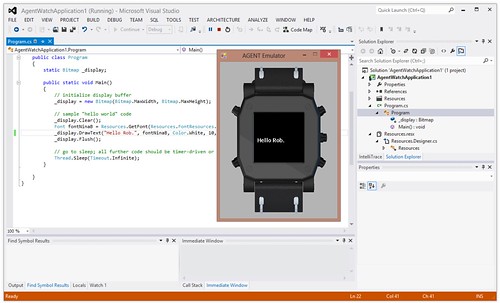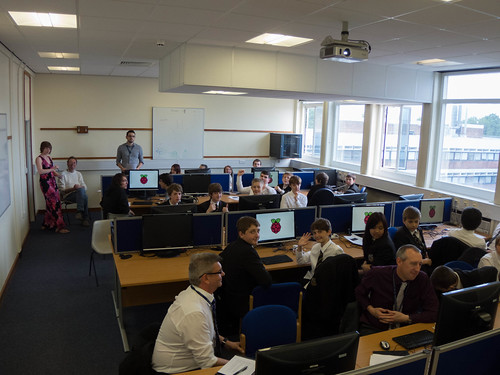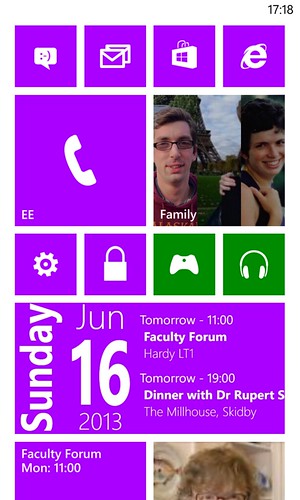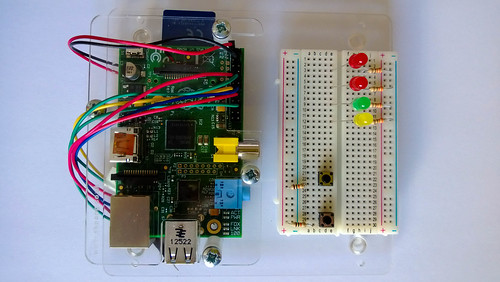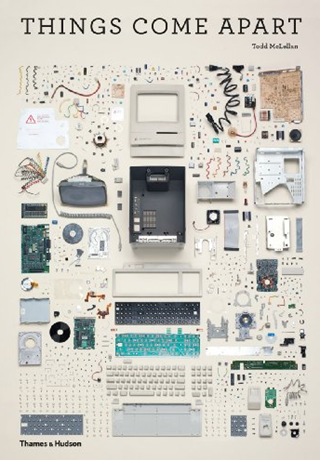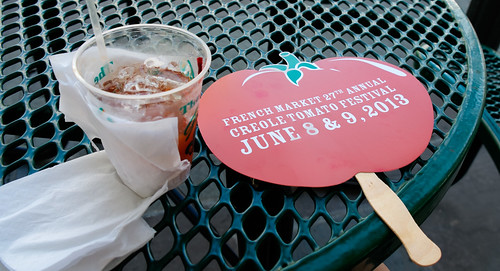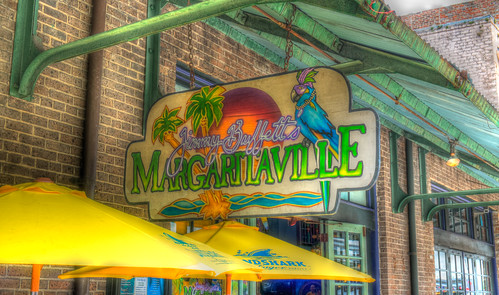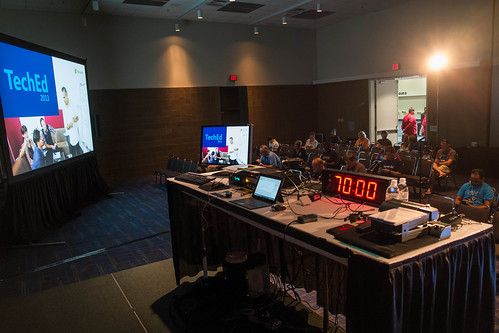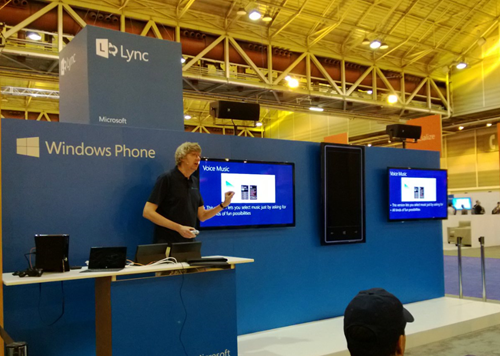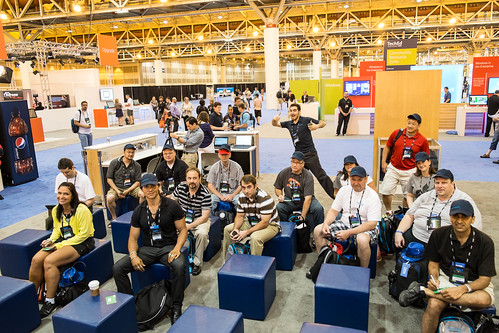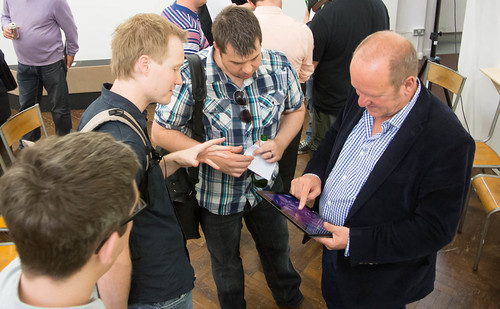
Ian Livingstone playing the game that got us to London. He reckons we should set it in space, and I think he might just be onto something….
To start with, a bit of history. What seems like ages ago David, Simon, Lewis, David and me took part in Global Game Jam Hull. And we built a game. Then Microsoft offered a prize for the best Windows 8 game that came out of the Game Jam and made it into Windows Marketplace. So David and Simon took the game engine, made it marketplace ready and shipped it. And Heartotron won. At the time we weren’t sure just what we had won, but part of the prize turned out to be a trip to London to tour a game development studio and meet up with some of folks who made the game industry what it is. And so we found ourselves on a train at 8:00 am in the morning, speeding through the sunshine and looking forward to an interesting day.
Which we got in spades. It was great. First up was a look around Lift London, a shiny new Microsoft game studio with a focus on making games the Indy way. No big (or at least huge) teams, flexibility, appropriate technology and total commitment to the product are the order of the day. Lift London also sees incubating fledgling games developers such as Dlala as part of their remit, which is very interesting.
With people on the team who can say things like “..and then we went on to write Banjo-Kazooie…” or “..and then we did Singstar..” alongside folks who have grown up writing and pitching games any way they can I reckon we can look forward to some fun stuff in the future.
We got to look at some work in progress, which was fascinating for me. The transition from ideas to drawings to models on the screen was intriguing.. I get very jealous of people who can draw, and loved seeing these people in action, and how they can turn out lovely looking artwork with just a flourish of their Wacom pens. Most impressive.
Then it was time to move on to Modern Jago, a pop up venue in Shoreditch, for workshop with the gaming legends Ian Livingstone (Vice chairman of Ukie, Games Workshop founder, president at Eidos), Andy Payne (chairman of UKIE and CEO of Mastertronic) and Philip Oliver (TIGA board member and CEO of Blitz Games Studios).
Each had plenty of time to speak and plenty to say. Some things that I took away, in bullet form:
- There has never been a better time to be writing games. Cheap tools and an easy path to market give you amazing potential.
- There has never been a more competitive time to be writing games. The statement above is true for everybody.
- Put your monetisation in at the start. If you are going to sell your game, be up front about that (although recognise that very few people will part with cash to buy it). If you have a pay to play model, put that in the central game mechanic. It is impossible to add it later.
- Use metrics and feedback. Track downloads, watch for reviews and scores, use telemetry to be able to tell how far people get through the game, how long they play for, and when they give up. Phase your releases so that you get feedback from one part of the world (for some reason Canada and New Zealand are popular for this) before you go global.
- Look for the “soft” market. A big splash in a small pond with a future has more potential than trying to make an impression in a huge marketplace with scant resources.
- Get a following. Napoleon reckoned that with 1,000 followers you have an army of your own. He wasn’t on Twitter, but you can be. Give opinions and help to people out there and build a following of folks who like you. A crowd who like what you do and want to see what you do next are great to have around. Be loyal to them and they will replay you by supporting what you do.
- Get a job. You might plan to be a lone gunfighter releasing your fantastic stuff for the world to marvel at, but it much easier to do this with a roof over your head and a full stomach. One of the things you need to succeed is luck (everyone said this). Napoleon (him again) reckoned that he always preferred his lucky generals to his clever ones. If the luck isn’t there, and it may not be, you still need to eat. Make time for your development and go at it full tilt, but there’s nothing wrong with having a backup plan.
- Get some “skin in the game”. This kind of goes against the above but I still feel it is something to think about. If you feel that the stars are aligning and that this is “the one” then feel free to go for it every way you can. Living in a van for six months while you raise funds and build your product base might be the thing you have to do to achieve success. Worst case maybe your boss (see above) will have you back – particularly if you part on good terms.
- The three most important aspects of a game are playability, playability and playability. But graphics and high production values are a way to distinguish your product and get people in to discover just how good your game is. But this, of course, costs money and time. As does buying a place in the charts that gets you noticed, something else which might be a necessity.
- Put yourself out there. I was particularly pleased to hear this one, as it chimes with what I’ve thought for years. You need to be able to do the “front of house” stuff. This is really bad news for software developers, who tend not to be the most extrovert folks, but it is a necessary skill. Get yourself in front of people. Practise doing stand-up, meeting and greeting and networking. If you don’t have these skills other people will not compensate for your lack of them. They’ll just find someone else more interesting to talk to. Ian Livingstone himself said that this is one lesson he took a long time to learn. The great thing about computer folks is that they are used to picking up new tools and APIs. Treat this as just another thing you have to learn and get good at.
- Make a good story. The press is interested in you, but only if you are interesting to them. “I’ve made a fishing game” is not useful to them. But “I’ve made a fishing game that I wrote underwater whilst wrestling a Great White Shark on the Barrier Reef” is. Make sure that you have a good tale to tell. Use your followers (see above) to big you up and help you get noticed.
- If you are working as a team, set some ground rules (another favourite of mine). Have a plan for what to do if your lead developer gets a “proper” job and stops writing your game engine. Have a protocol and a policy for re-negotiating your arrangements when these events happen.
- You don’t need to be the best, or cleverest. Just there are the right time, in the right place, with the right thing. Try lots of things, in lots of places as frequently as you can. Don’t expect success to happen the first, second or perhaps even the third time. But as soon as you get a sniff of something that seems to be working, follow it, develop it and ride it, and you might be the next big thing.
All in all a fantastic day out. Thanks to Microsoft for setting it up.
